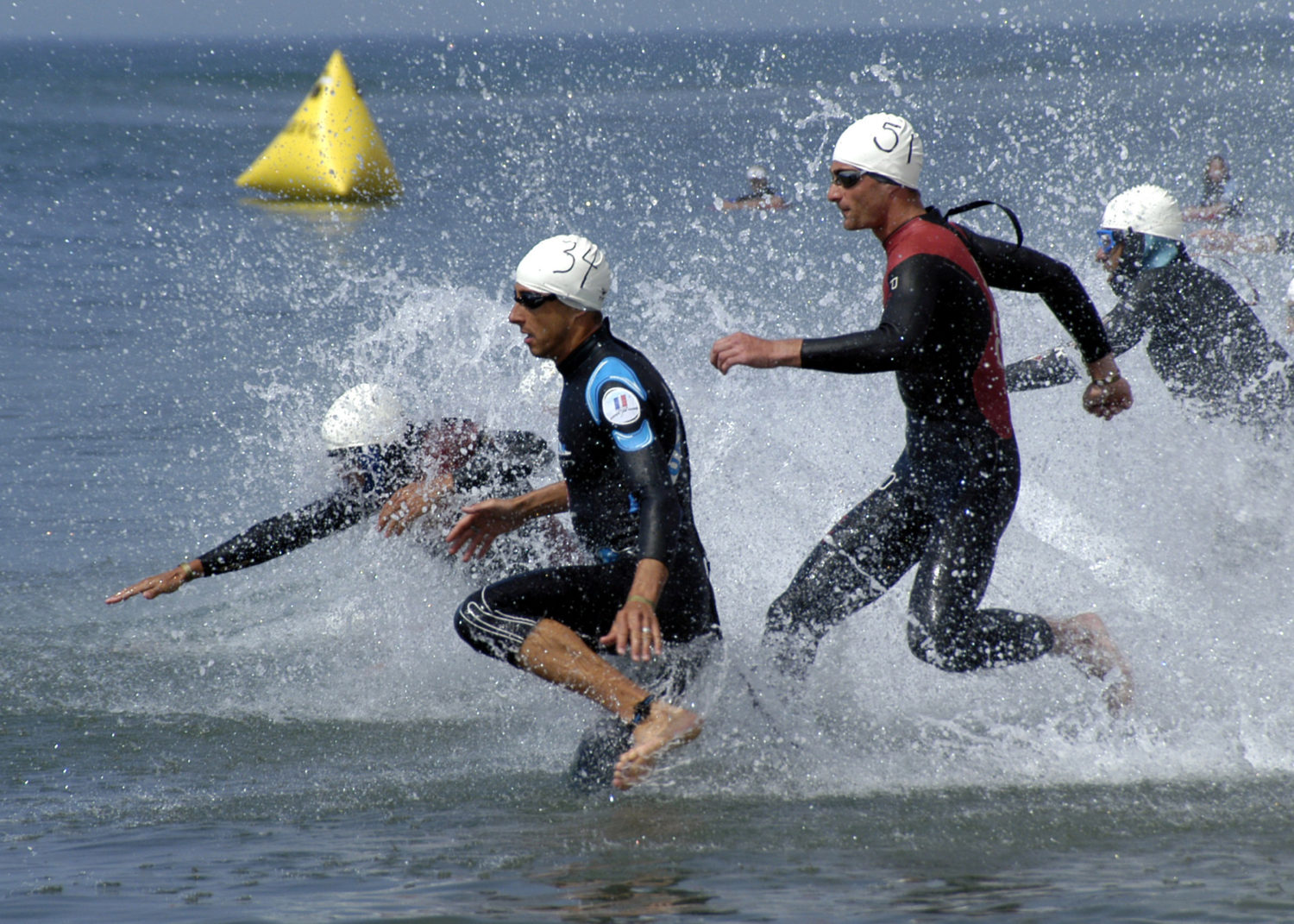
Are you ready to dive into the exhilarating world of triathlon training? Whether you’re a seasoned athlete or a beginner looking for a new and exciting challenge, triathlon training offers a unique combination of swimming, cycling, and running. It requires endurance, strength, and mental fortitude. But before you embark on this amazing journey, there are a few key facts you should know. In this article, we’ll explore 15 facts about triathlon training that will not only give you a deeper understanding of the sport but also help you optimize your training and achieve your goals. So, get ready to push your limits, overcome obstacles, and become a triathlon superstar!
Key Takeaways:
- Triathlon training involves swimming, cycling, and running, and requires a balanced approach to build endurance and strength in all three disciplines. It also promotes camaraderie and personal transformation.
- Triathletes need to manage time effectively, use specialized equipment, and develop mental strength. Nutrition, cross-training, and efficient transitions are crucial for optimal performance in triathlon races.
Triathlon is a multi-sport event.
Triathlon is a demanding endurance sport that combines swimming, cycling, and running into a single race.
The first modern triathlon was held in 1974.
The first modern triathlon event took place in San Diego, California, with 46 participants competing in a race that included a 10-kilometer run, an 8-kilometer bike ride, and a 500-meter swim.
There are different distances in triathlon.
Triathlon races vary in distance, with the most common being the sprint distance (750-meter swim, 20-kilometer bike ride, and 5-kilometer run), Olympic distance (1.5-kilometer swim, 40-kilometer bike ride, and 10-kilometer run), and Ironman distance (3.8-kilometer swim, 180-kilometer bike ride, and 42.2-kilometer run).
Triathlon training requires a balanced approach.
A successful triathlete must train in all three disciplines, focusing on building endurance, strength, and technique in swimming, cycling, and running.
Cross-training is essential for triathletes.
In addition to swimming, cycling, and running, triathletes also incorporate other forms of exercise into their training, such as strength training, yoga, and flexibility exercises, to improve overall fitness and prevent injuries.
Nutrition plays a crucial role in triathlon training.
Proper fueling before, during, and after training sessions and races is essential for optimal performance. Triathletes need to consume a balanced diet that includes carbohydrates, protein, and healthy fats.
Triathletes use specialized equipment.
Triathletes rely on specific gear to enhance their performance, including triathlon bikes, wetsuits, cycling shoes, and running shoes designed for long-distance running.
Transition times can make a difference.
Transition times, the periods between swim-to-bike and bike-to-run, can significantly impact a triathlete’s overall race time. Efficient transitions involve quick gear changes and proper preparation.
Mental strength is crucial in triathlon.
Triathlons push athletes to their limits physically and mentally. Developing mental toughness and maintaining a positive mindset is essential for overcoming challenges and pushing through fatigue.
Triathlon training requires time management.
Training for three disciplines can be time-consuming. Triathletes need to carefully plan their training schedules to ensure they have enough time for each activity while balancing work, family, and other commitments.
Triathlon races take place in various environments.
Triathlons are held in a variety of settings, including open water, lakes, pools, and outdoor tracks. The diversity of race environments adds to the excitement and challenge of the sport.
Triathlon training can be done individually or as part of a team.
While triathlon is often considered an individual sport, some athletes participate in team triathlons, where each member completes one discipline.
Triathlon events promote camaraderie among participants.
Triathlon races foster a sense of camaraderie and support among participants, as they cheer each other on and celebrate their achievements together.
Triathlon has different age categories.
Triathlon competitions often have age categories to ensure fair competition. Participants compete against others in their respective age groups, fostering inclusivity and providing motivation for personal improvement.
Triathlon training can lead to personal transformation.
Embarking on a triathlon training journey can be life-changing. It pushes athletes to discover their inner strength, overcome obstacles, and achieve personal goals they may have never imagined possible.
Triathlon training is a challenging yet rewarding endeavor that tests an athlete’s physical and mental fortitude. With dedication, proper preparation, and a passion for the sport, anyone can become a triathlete and experience the thrill of crossing the finish line. So, whether you’re a beginner or an experienced athlete, embrace the journey and dive into the world of triathlon training!
Conclusion
In conclusion, triathlon training is a challenging and rewarding endeavor that requires discipline, dedication, and perseverance. By incorporating a well-rounded training plan, focusing on proper nutrition and rest, and seeking guidance from experts in the field, athletes can improve their performance and achieve their goals in triathlon competitions. Remember to listen to your body, set realistic goals, and have fun along the way. Whether you’re a seasoned triathlete or just starting out, triathlon training offers an incredible opportunity for personal growth and achievement. So dive in, push your limits, and embrace the incredible experience that triathlon training has to offer!
FAQs
1. How long does it take to train for a triathlon?
Training duration can vary depending on the distance of the triathlon and individual fitness levels. Generally, it is recommended to have a training period of 12-20 weeks.
2. Do I need specialized equipment for triathlon training?
While specialized equipment such as a road bike, wetsuit, and running shoes tailored for triathlon can enhance your performance, they are not mandatory for beginner-level triathlon training.
3. How do I balance my training with other commitments?
Time management is key. Prioritize your training sessions and plan your schedule accordingly. It might involve early morning or evening workouts and flexibility in adapting to unforeseen circumstances.
4. How important is nutrition in triathlon training?
Nutrition plays a vital role in fueling your body for training and recovery. It’s important to maintain a well-balanced diet, staying hydrated, and fueling properly before, during, and after workouts.
5. How can I prevent injuries during triathlon training?
Preventing injuries involves gradual progression, proper warm-ups and cooldowns, adequate rest and recovery, and listening to your body. Incorporating strength training and cross-training exercises can also help prevent overuse injuries.
6. Should I seek professional coaching for triathlon training?
While it’s not mandatory, seeking professional coaching can greatly benefit athletes of all levels. Coaches can provide personalized training plans, address weaknesses, improve technique, and provide guidance throughout the training process.
7. Are there different types of triathlon events?
Yes, triathlon events come in various distances, including sprint, Olympic, half Ironman, and Ironman. Each distance requires different training strategies and preparation.
8. Can I do a triathlon even if I’m not a strong swimmer?
Absolutely! Many triathlons offer options such as duathlons or aquabikes, which eliminate the swimming leg. You can choose an event that suits your strengths and preferences.
9. How do I stay motivated during triathlon training?
Setting realistic goals, tracking progress, celebrating milestones, finding training partners, and participating in group workouts or races can all help maintain motivation throughout the training process.
10. How can I prepare mentally for a triathlon?
Mental preparation is crucial for triathlon training. Practicing visualization, setting positive affirmations, and developing mental strategies to overcome challenges can help build mental resilience and enhance performance during the race.
Triathlon training is a challenging yet rewarding journey that tests your physical and mental limits. By incorporating these 15 facts into your training regimen, you'll be well on your way to becoming a successful triathlete. Whether you're a seasoned athlete or just starting out, investing in the right equipment can make all the difference. Consider exploring our article on the 7 best running belts to enhance your run training and take your performance to the next level.
Was this page helpful?
Our commitment to delivering trustworthy and engaging content is at the heart of what we do. Each fact on our site is contributed by real users like you, bringing a wealth of diverse insights and information. To ensure the highest standards of accuracy and reliability, our dedicated editors meticulously review each submission. This process guarantees that the facts we share are not only fascinating but also credible. Trust in our commitment to quality and authenticity as you explore and learn with us.


